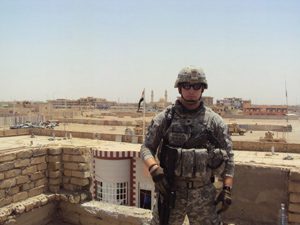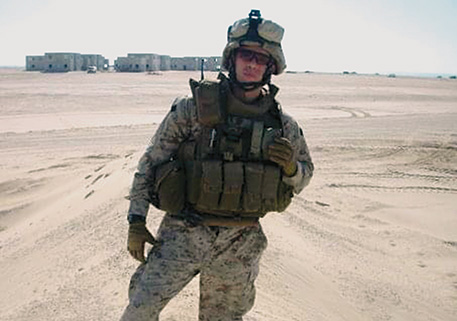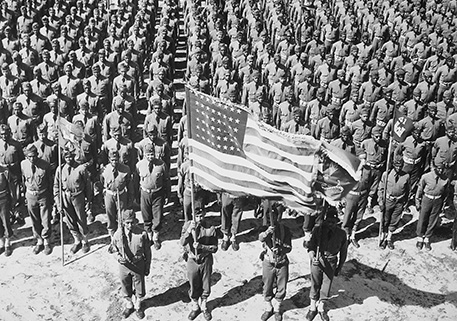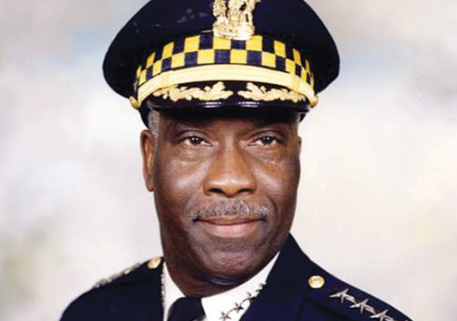
Iraq veteran finds cannabis helpful as Washington debates how to move forward
Like many veterans, service took a toll on Ryan Rasnick.
While he was driving in western Anbar Province in Iraq in 2009, an RKG-3—a Russian-made anti-tank hand grenade—was hurled directly in front of his vehicle. Rasnick quickly slammed on the brakes. And while the maneuver likely saved his and other lives, it violently jostled his neck causing longterm damage.
“My neck clicks every single day,” said Rasnick. “It’s something I’ll have to deal with probably forever.”
Though he had never tried marijuana, he gave it a shot when he came back from Iraq. The results, he said, were immediate, helping with both physical pain and invisible scars.
“I didn’t feel so intense anymore; I wasn’t as hyperaware,” said Rasnick.
Today, he’s a disabled veteran, card-carrying medical cannabis patient and advocate for alternative medicine.
Marijuana laws are rapidly changing across America as states experiment with varying degrees of cannabis legalization. To date, 33 states and the District of Columbia have a medical marijuana program, of which veterans like Rasnick are increasingly taking advantage.
It’s a far cry from where he once stood. Less than a week after coming home from Iraq, Rasnick began self-medicating with alcohol. In less than six years, he’d racked up two drunken driving arrests.
“Drinking would trigger my hyperawareness and chaos would ensue,” he said. “But I wanted to stop being destructive, so I got my drinking in check.”
In 2017, he met with a psychiatrist at the Department of Veterans Affairs in Cleveland.
“Within 15 minutes, I was prescribed lithium,” said Rasnick, a member of DAV Chapter 62 in Norwalk, Ohio. “It scared me and made me feel distrusted.”
He later decided to stay away from prescription pills to deal with his wounds of war and committed to finding alternative treatments. Now, he is a daily medical cannabis user and says he also uses it at times to help him sleep.
And he certainly isn’t alone. According to a study published this May in The American Journal of Drug and Alcohol Abuse, 80% of veterans surveyed reported using medical cannabis to treat both physical and mental health symptoms. More than 60% of respondents said they used it as a substitute for other substances, alcohol in particular, and half indicated they use it in place of prescription medications.
According to the study’s authors, their research “confirms the findings of previous studies that have documented a trend in substitution behavior, where cannabis is substituted for other drugs.”
While some states are looking to launch or expand a medical cannabis program for veterans, VA health care providers are not able to legally recommend or prescribe it for patients since marijuana is still classified as a Schedule 1 drug by the Drug Enforcement Administration. However, veterans who use cannabis or its byproducts in a state-sanctioned medical program are not at risk of losing their VA benefits and are encouraged to discuss usage with their VA physicians to help inform their overall treatment plan.
Lawmakers in Washington, D.C., agree that cannabis may be a promising alternative medicine for veterans.
“I believe cannabis must be objectively researched,” Rep. Mark Takano of California, chairman of the House Veterans’ Affairs Committee, said in a hearing in June.
Several bills exist that would encourage and direct the VA to look into the issue more seriously. One is the VA Medicinal Cannabis Research Act, which would direct the secretary of veterans affairs to carry out a clinical trial to determine if veterans suffering from chronic pain and post-traumatic stress disorder could benefit from medical cannabis. And the Veterans Equal Access Act would allow VA physicians to complete necessary paperwork for veterans to enroll in medical cannabis programs in their state.
DAV supports VA research into the medical efficacy of cannabis for service-connected disabled veterans, which was reaffirmed at the organization’s 98th annual convention in Orlando, Fla., in August.
However, Larry Mole, chief consultant for population health at the VA, told House Veterans’ Affairs Committee members in May that the VA is currently unable to support such legislation, as its health providers could be subject to criminal prosecution by the Justice Department for prescribing medical cannabis or referring veterans to state-run programs.
Still, the VA is currently funding research at the University of California San Diego to study if veterans with PTSD benefit from having cannabidiol as part of their care treatment plan. Other VA researchers funded by outside sources are also studying the issue, and according to Mole, one key part of the research process is having input from veterans service organizations.
“VSOs have to be at the table when we’re having conversations about a research plan and what a full research portfolio would look like,” said Mole. “There needs to be engagement. We need to educate each other on what each other’s expectations are and define what those expectations would look like for that research plan.”
Veteran Bill Ferguson, co-founder of the Veterans Cannabis Coalition, echoes the need for more research based on success that he’s seen.
“Sleep, pain, anxiety—we see marijuana help all of these and more,” said Ferguson. “I haven’t seen anything better when dealing with hypervigilance. Still, it’s not a cure-all for everything, which is exactly why we need the research.”






